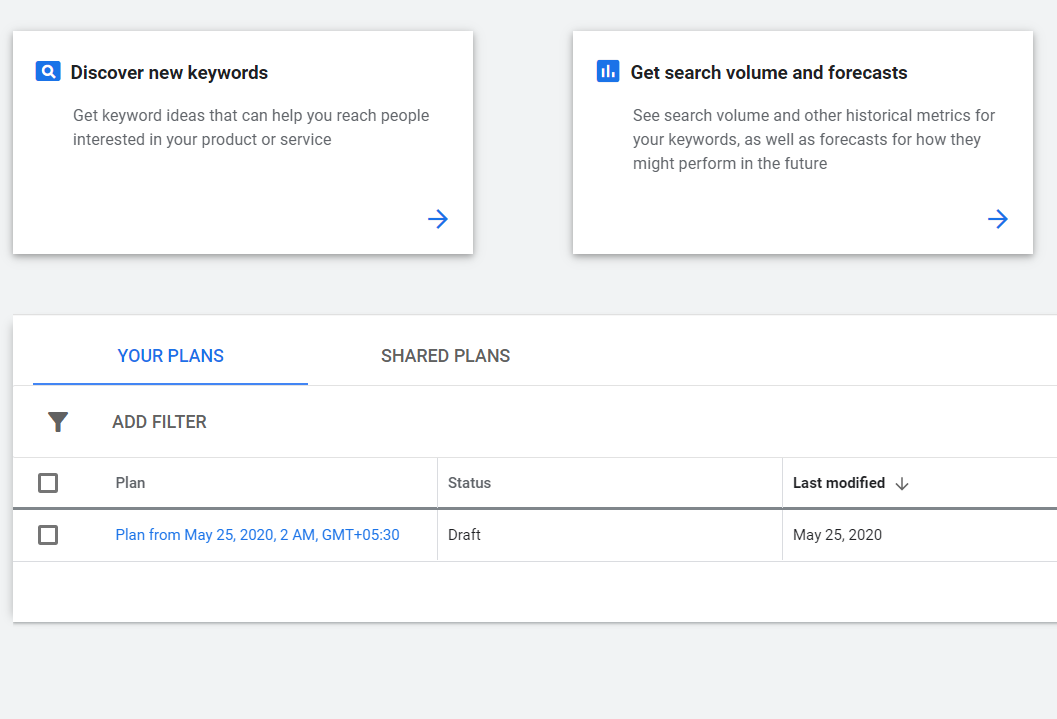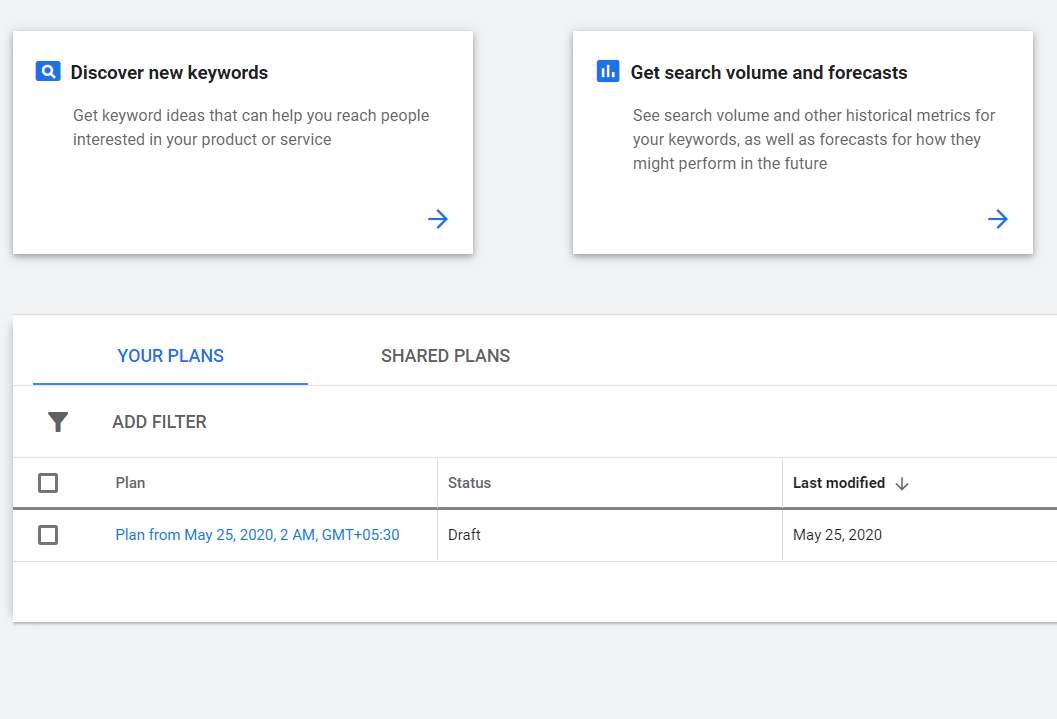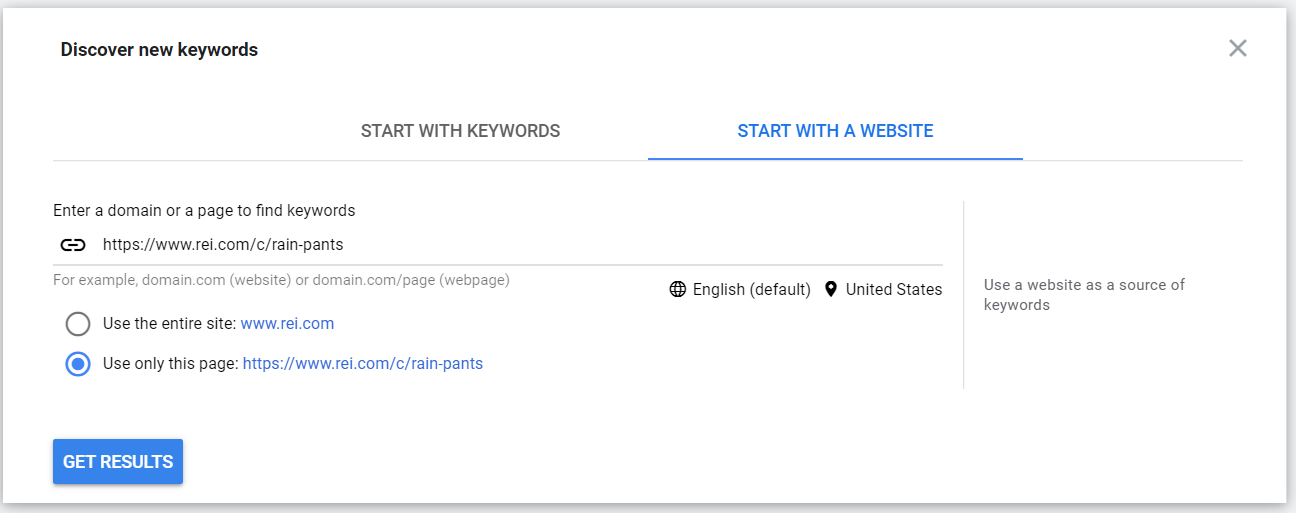Keyword analysis is the solid foundation that strengthens every eCommerce SEO campaign. With 44% of people starting their online shopping journey with a Google search, if you don’t have the right set of keywords, you are missing out a lot.
Simply put, an eCommerce keyword research will help you identify the right keywords to include in your website and product pages – these keywords being the ones used by a potential customer to search for products or services.
However, it is not just about finding keywords that can boost your website traffic. It is more about finding the right set of keywords that will result in higher conversion rates, and ultimately, better sales.
So, wondering how and where to start your keyword research? This article will cover everything you need to know about how to successfully perform keyword research and bring thousands of high converting traffic.
Before that, let’s look at something that brings more understanding to this – “why SEO eCommerce?”.
Why is eCommerce keyword research important?
Whenever a person inputs a keyword into a search engine like Google, a combination of algorithms works to determine the best and relevant pages that the searcher might find helpful. If your eCommerce website has the relevant keywords, the search engines will display it to the searcher.
Simply put, it is the craft of understanding what your potential customers are typing in to find products of the kind you offer. If you spend more time and effort into keyword research, you will undoubtedly benefit by ranking higher.
One way eCommerce SEO increase sales is by ranking higher and making your website more accessible to searchers. However, there’s another way how it can help your business. As you are investigating how customers try to access the kind of products you sell, you will most likely get to know what they really want.
Key steps for eCommerce SEO keyword research
Even though hiring an eCommerce SEO company is the fastest way to boost your online presence, you can create a high-quality keyword list with little efforts and a few easy-to-use tools. Here’s a list of steps on how to improve eCommerce SEO in search engines using keyword research.
-
Use search engines
Search engines are the best place to start with for your keyword research. Above all, it’s where all of your potential customers will be searching for the products or services you offer.
Put yourself in your customer’s shoes. Type in the terms your customers might search for. Here’s an example for you.
Suppose you sell waterproof pants. Google the very term.

As you can see, people search for a variety of other phrases that contain the term “waterproof pants” in it. All of these must go into your keyword list.
Now scroll down, and you will see another section labelled “People also ask”. These are the questions that users enquire about relating to your product. Seize them as well.

And finally, if you scroll to the bottom of the page, you will see another section labelled “Searches related to your product”. People also search these terms. List them too.

The “Searches related to” section of Google Search results.
Don’t stop yourself with a handful of keywords. Type in several variations like “rain pants” or “raincoat pants” until you have an enormous list of keywords.
Don’t worry! You won’t be using the entire list. We will be cutting down the list to a reliable few based on relevance and some other parameters in the following steps.
2. Use Amazon for keyword research
Just like search engines, Amazon is a great place to perform keyword research. With 9 out of 10 consumers using Amazon to check product prices, you can use the platform to discover high buyer intent keywords with ease.

The research process is just like with search engines. You start typing your product search term, and just like Google, you will come across several auto-complete suggestions. Try several variations, and you will be soon having a long list.
3. Do competitor research
While searching for your product, if you found that your competitors were placed top in search results, you can steal keywords from them as well.

Results for “Rain Pants” on online store REI Co-op.
Visit their website and look out for potential keywords on their homepage and product pages. Do keep in mind that they might be outranking you because of higher domain authority and not just keywords.
4. Use keyword research tools
Using keyword research tools, you can explore keywords and gain more insights on how much value a keyword is capable of adding to your website. Primarily, you can use a keyword research tool to:
- Find keywords
- Understand its search volumes and difficulty
- Perform competitor analysis.
Here’s a list of some keyword research tools, you can use to find the perfect set of keywords:
Furthermore, you can use tools like Google Trends to identify popular search queries across different regions and languages.
Here’s an example of finding keywords using Google Keyword Planner.
Once you sign up for a Google Ads account, click on “Discover new keywords”.

Then you will be directed to enter a search term, relating to the products or services you offer.

Google will use this term to analyse and display a list of keywords. Click on “Get Results”.

As you can see, in Keyword Planner, you can find a massive list of keywords ideas related to your products. List all these keywords, and we will sort them in the following step.
Instead of manually searching for keywords on a competitor’s website, you can use the Keyword Planner for the same purpose.
To do that, click on “Discover new keywords” and choose “Start With A Website”. Enter a competitor website’s URL and decide whether to scan the entire site or a particular page. Click on “Get Results”.

Just like searching for keywords, you will be able to see a list of keyword ideas. Include them in the list as well.
5. Find monthly search volumes and ranking difficulty
Once you have created an ample list of keywords from the above steps, you will need to determine which keywords will be valuable to your website, based on their search volume and competition (also known as keyword difficulty).
Search volume refers to the total number of searches performed through a search engine over a specified period of time.
Competition relates to the number of advertisers bidding on specific keywords. Google Keyword Planner categorises competition as Low, Medium and High. The higher the competition is, the harder it is to rank first on SERP.
The key to finding a perfect keyword from the accumulated list is by finding a healthy balance between its search volume and competition. While sorting the keywords, keep these points in mind:
- Highly popular phrases would mean the competition is high.
- Terms with less popularity mean few people search for them.
- If a keyword has massive competition, it will be harder for you to stand out.
- Less competition may also mean the competitors don’t consider those keywords to be necessary.
While the above points might seem a bit confusing, it will all make sense if you try to sort keywords that are not too competitive or popular. Also, make sure the keywords are commonly associated with your industry and are used to search for your products.
You may not rank higher in the very first attempt. Even eCommerce SEO experts experiment with a combination of keywords, till they find the best ones that complement a website the most.
6. Find and use keywords matching your website
Even though your keywords are super crucial to rank higher, stuffing them will be counterproductive. As a result, even if you find some popular keywords, don’t use them thoughtlessly throughout your eCommerce website.
The key is to have a logical flow that connects each keyword to others and would make sense for both your customers and the search engines.
For example, if “waterproof men’s pants” is a keyword you are targeting, and you are selling pants in general, using the keywords “pants for men” and “pants for women” on the homepage is more sensible. You can then include the keywords like “waterproof men’s pants” or “golf pants” as you proceed to the inner product pages.
In short, use broader keywords at the homepage level, and use more specific ones as page depth increases.
7. Find and use keywords matching user intent
If the content is king, context is the key to the kingdom. The first step of this segment was to “Put yourself in your customer’s shoes”. The reason why we did that is that – search is not just about keywords, but also about user intent.
Along with including relevant keywords, matching your content to a searcher’s intent is crucial to gain high converting traffic. For instance, if a person searches for “tips to clean carpet”, their intent is to find tips to make the cleaning process easier.

If you sell carpet cleaning products, you can’t directly target these searchers with a product. If you do so, users are more likely to “bounce” as they wanted tips rather than products. This will reduce your rank as search engines will find your page irrelevant and is the exact opposite of eCommerce SEO best practices.
However, if you have a blog for your eCommerce website, you can list the tips to clean carpets and include your product as an anchor text.
This way, it’s a win-win situation. Searches get to read what they seek, and you get to target a keyword. If you are offering high-quality content, searchers are more likely to trust your brand and convert in the process. This is a crucial characteristic of content marketing.
8. Be highly specific with keywords
If you are selling waterproof pants and only that, the term “pants” isn’t relevant to your website as it can mean other types of pants like cargo or golf pants. To make sure your searches see exactly what they expect, you need to make your keywords even more specific.
As discussed before, broader terms might seem relevant for a homepage. But as you go deeper into product pages, your keywords must be highly specific as it is the only way search engines can match your content/products to searcher queries.
Simply put, if you are trying to target multiple keywords on a single page, search engines will have a harder time determining what the page is about. This will defeat the entire purpose of research and might push you down the ranks.
Read these eCommerce SEO case studies for an in-depth understanding of tailored strategies.
Wrapping It Up
As you can see, keyword research is a small step that can make a big difference in your online sales. Put yourself in your customer’s shoes, find relevant keywords and always create contents satisfying user intent. You will soon be bombarded with thousands of high converting traffic.
However, keep in mind that keyword research is always an ongoing process. You need to tweak it, from time to time, and search engines like Google will soon better understand what your eCommerce business offers.
Need help to drive those valuable organic search traffic to your ecommerce website? Ask us for a free audit check on your website now!

